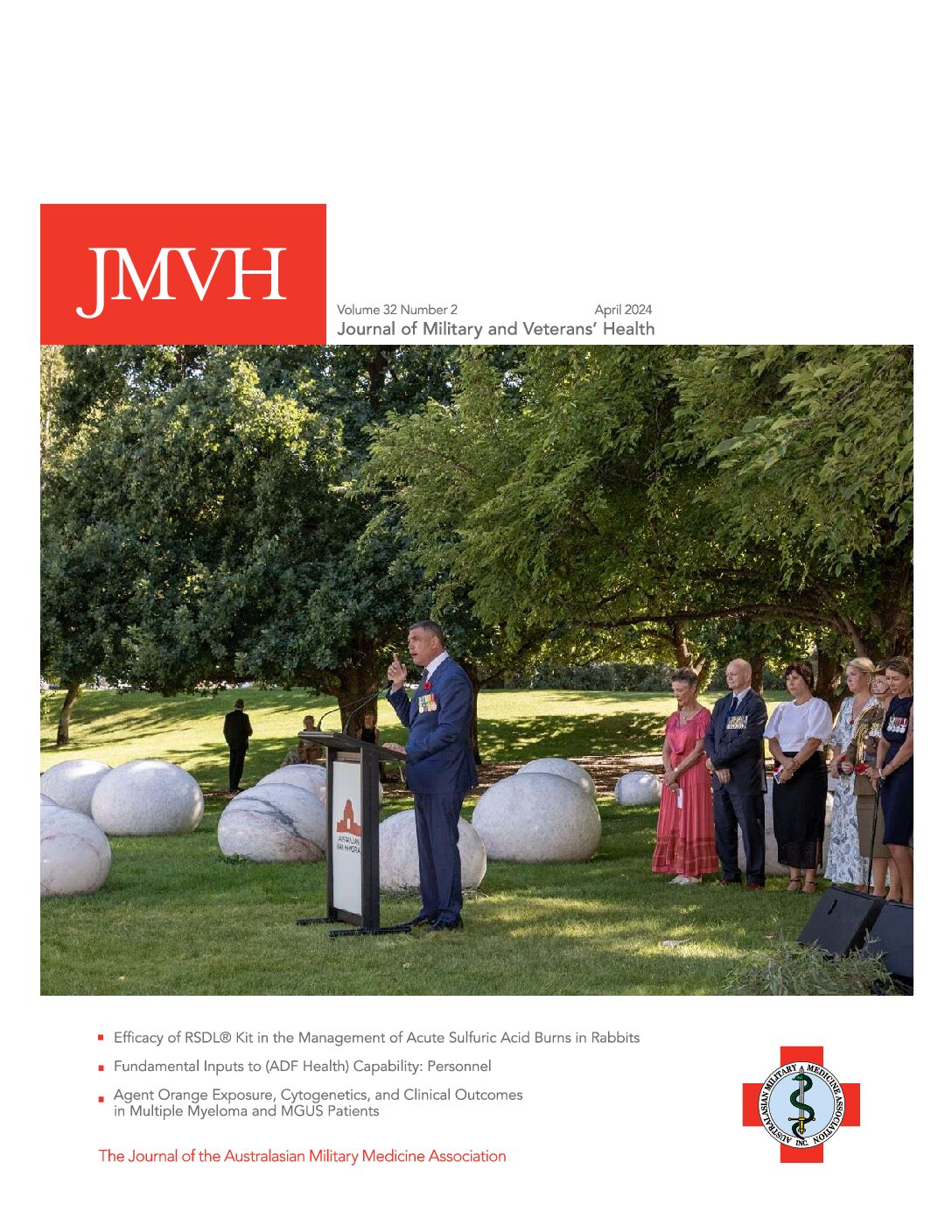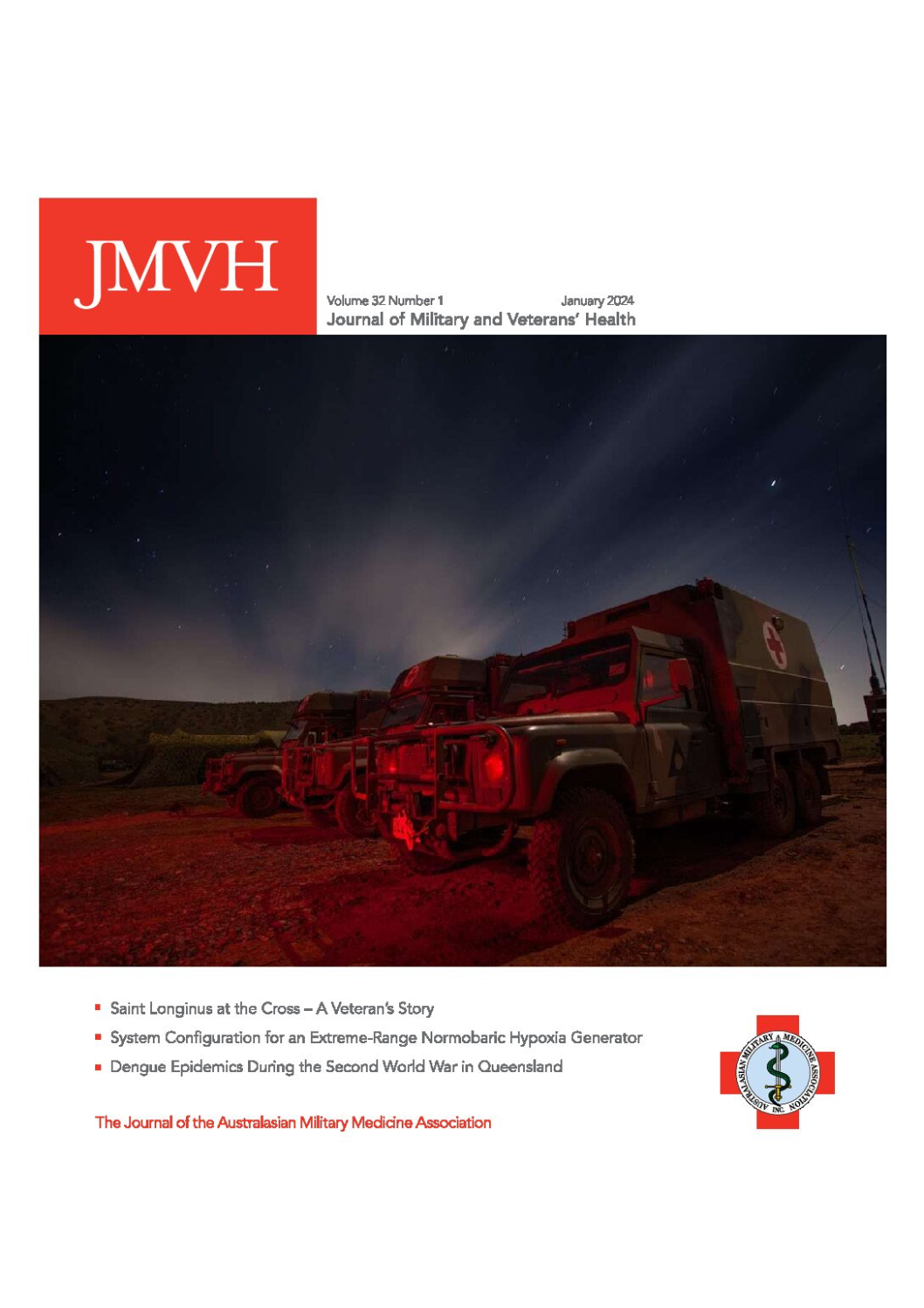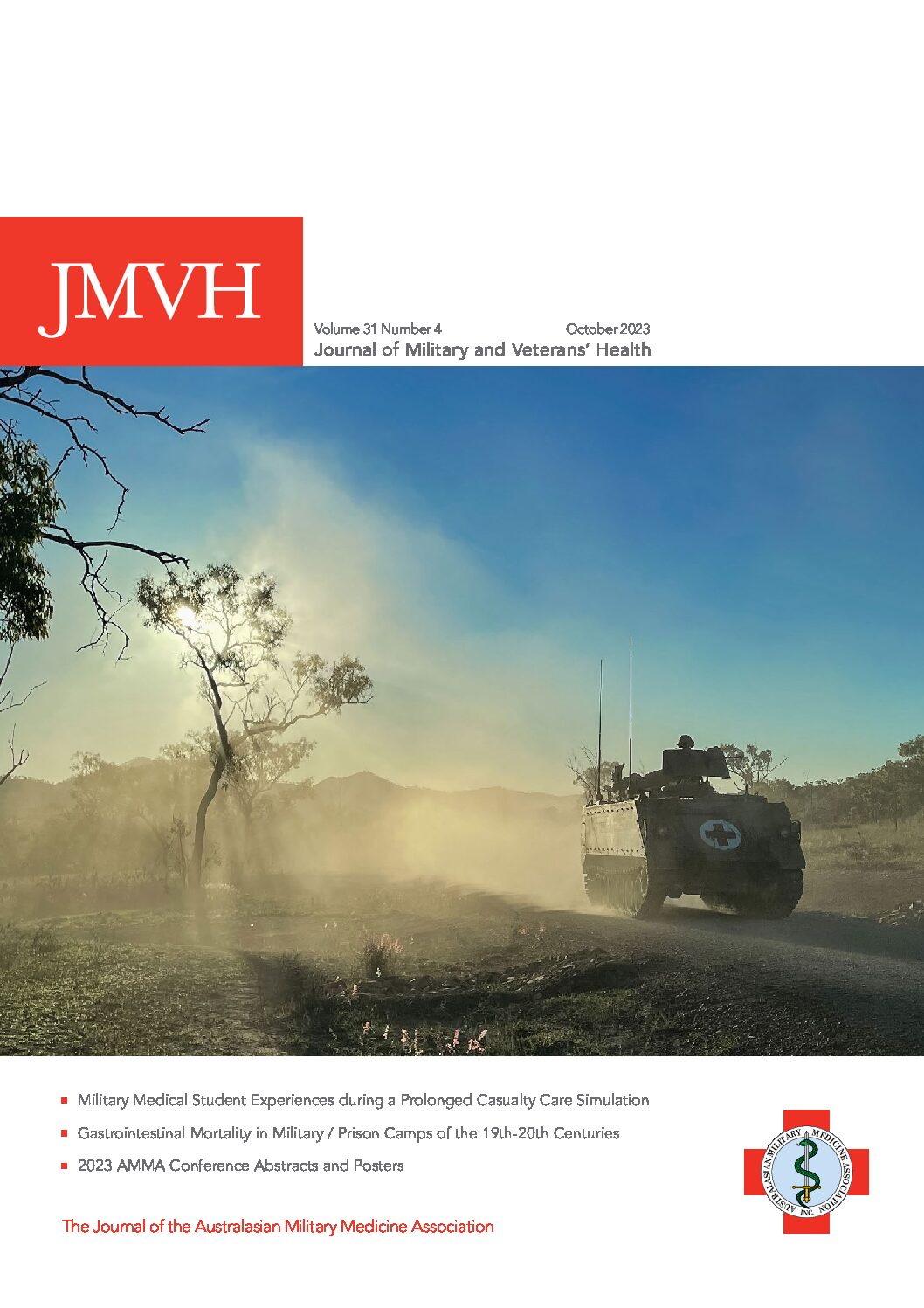The July edition of JMVH as always contains a wealth of material.
In his article International house calls: Public health or public relations?, Art Smith raises the thorny issue of the real impact of many non-emergent humanitarian missions that military forces around the world are often tasked with by their governments. He makes the point that many of these do not effect long-term change because they focus on simple treatment options rather than the more complex underlying public and population health issues that are faced by poorer countries. They also sometimes have the impact of undermining the population’s confidence in their governments by highlighting the shortcomings of their own health systems.
Darryl Tong discusses the role of dentists in mass casualty situations, and in so doing addresses the need to ensure that all members of the health services are effectively used in circumstances where health resources are overwhelmed through disaster. Darryl points to the skills that dentists have that can be effectively utilised and challenges us to think how we can move this issue forward.
Sadly, as always, lessons continue to be learnt from active combat operations, and Jeffrey Stephenson has analysed some of those from recent operations in the Middle East. In outlining these he has also provided early information on some of the changes to practice that help to support the highest practicable care in difficult operational environments.
Our reprinted article focuses on that frequent Australian occurrence – the envenomated patient – and some of the challenges that can face clinicians in both their diagnosis and management. Highlighting the vagaries of the country where just about everything seems to be designed to kill you, the article includes a timely reminder that documented habitats of Australia’s dangerous animals may not be accurate, or may be another impact of global climate change.
Robb Wesselingh has contributed an interesting article on one of the earliest traditions of military medical care – the milites medici of the ancient Roman Army. In so doing, he again highlights the role that military operations play in the development of medicine and health care for the broader community.
The thorny issue of medical officer retention is raised and discussed by Michael Clements in A View from the Front, and this edition is rounded out by a book review by Peter Leggat – Marshall and Ruedy’s On Call: Principles and Protocols.
Please specify the URL of your file





